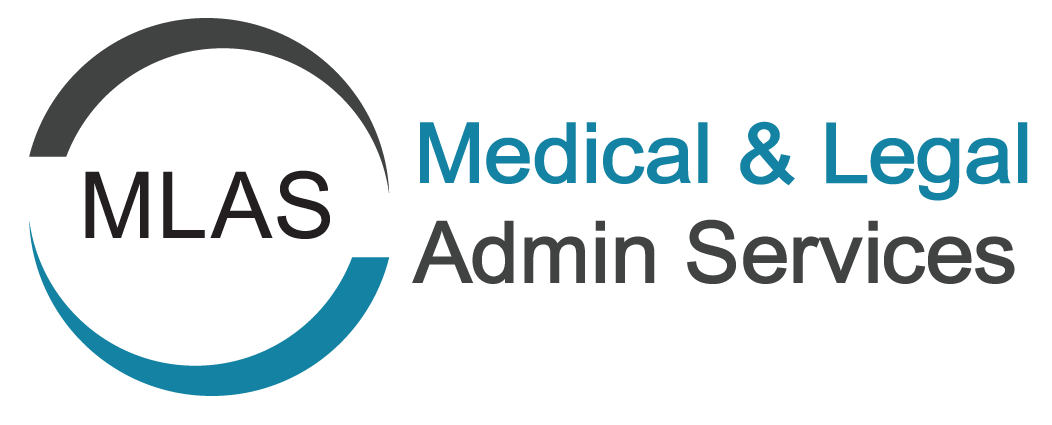The role of an expert witness is an incredibly important one. When choosing an expert witness, it is vital that instructing parties engage with a professional with the ability to communicate clearly, provide efficiency and quality in report writing, a forensic approach to the examination of evidence, and a balanced and sensible opinion.
As part of our new Q&A series, we sat down with Mr Ian James MacKendrick, Fellow and Chartered Financial Planner and founder of Paladin Financial Experts, to learn more about what makes a good financial expert, his passion for justice, and satisfaction in problem-solving.
Watch the video below to find out more.
Want to learn more about Paladin Financial Experts? Visit their website here, or you can find out more about Mr MacKendrick here.
Transcript
Hello Ian! Could you please tell us a little bit about yourself and how you got to where you are now in your career?
Hello, my name is Ian MacKendrick, I’m the founder of Paladin Financial Experts and I am a financial expert with MLAS, who provide me with brilliant back-office support.
My career, initially, when I was growing up was looking like becoming a professional footballer. I was with Nottingham Forest during the time of Brian Clough, but sadly, as is the case with many people trying to become a professional sportsperson, I didn’t quite make that and the only other thing that I was good at – I realise now because I’m autistic – was numbers. And so therefore it was a – I wouldn’t say an easy – but it was a relatively straightforward decision to enter the world of finance and numbers because that was something that came easily to me. What I hadn’t expected was quite how rapidly I would progress through my career.
What drew you to the world of finance?
Initially, after doing all my exams in evenings and weekends whilst I worked in the day, I ended up in my 20’s running an investment house and floating companies onto the stock exchange, raising millions of pounds for them and then sort of supporting them whilst they were on the stock market. Something inside just didn’t sit right with me. I didn’t like the way I was earning money. I’m sure that would have been a route to a large sum of money, but that didn’t seem to motivate me. So what I did is I made a decision to become an ethical, transparent and very trustworthy sort of beacon, if you like, for the financial industry.
I cut a year out of Finance. I lived all around the world, did 40 days silence, lived with tribes in the jungle, all sorts of weird and wonderful sort of self-discovery things to mould myself into to where I am today so that I could provide support to the most vulnerable people in our society with their finances, both as a financial expert for the courts and as an independent financial advisor for very vulnerable people. And I love it!
What personal qualities and skills have you found vital in your career? Has this changed over time?
I think being disabled myself has really helped me to empathize and understand most of my clients because the way that I have to structure my own life is actually very similar to how somebody with a brain injury, for example, has to structure their life. I need routine and things to be done a certain way and there’s certain tips and techniques that can really help me flourish. I love passing that sort of information on.
I’m a Dementia Friend, I trained for several years to become a counsellor, and I did a Masters in Neurolinguistic Programming, Hypnosis…lots of different things like these. So these I would say were to develop the softer side of the skill set that then sits alongside my financial expertise so that I can really treat a person as a whole and not just see them as a number on a bit of paper, getting that done and on to the next one. So, it’s much, much more important than that to me and, subsequently, I’m also setting up a charity to support people of that nature in in the workplace for example to help other people thrive.
What does a typical day look like at Paladin Financial Experts?
Well, a typical day is I always ensure that I walk my dog and have done my exercise. After I’ve done that and I’m ready for my day, it really depends because there’s different sides of Paladin Financial experts. Where I’m acting as the expert myself then I’m dealing with new inquiries or I’m preparing reports, preparing joint statements, or making commentary on Defendant or Claimant reports. Depending on who I’m instructed by, these are normally to tight deadlines. We can never miss a deadline, so you just work until the job is done.
In addition to that, what seems to have happened as well is because of the reputation we have, we’re attracting other experts that are working through Paladin Financial Experts, whether that be with pensions in divorce… it might be with expert police and drug work, looking at I.T, welfare benefits… all sorts of experts are looking at taking advantage of the reputation and are of sufficient quality where we can also look at those ancillary services as well.
So quite a lot of time is spent looking at that side of the business, making sure the structure and the support is in place for them as well and providing oversight to what they’re doing.
What inspired you to become an Expert Witness?
The initial inspiration was more Claimant focused if I’m honest. It was about noticing that a lot of litigation cases were under-settling claims because the financial side of the claims haven’t been done properly. This was something that was quite frustrating because there didn’t feel like a sense of justice and so my early days were sort of really that – that was my main motivation.
After doing it for a couple of years, you realise that, actually, that’s true of both sides. Sometimes a Claimant might be trying to over-egg the pudding, and the Defendants need a balanced, reasonable expert to make sure that they’re picking up on the points that are perhaps exaggerating the value of the claim. And that has equal value and equal weight because there’s two sides to the story. So really I suppose it’s that feeling of fairness, of transparency. And I like to think that 100% of the time I will always be doing what’s right for the Courts and the person and not myself or the instructing party.
What is the most exciting part of being an Expert Witness?
Well, pensions are notoriously exciting(!) …so I’m not sure exciting would be a word used by many, if any. I perceive it slightly different in the sense, going back to my previous point, the exciting point is really getting stuck into the great detail and complexity. I love unravelling. It’s like a mystery, so I feel like a detective. I’ve got to unravel what’s happened and what’s likely to happen, how it might pan out, and providing different solutions so people can arrive at a reasonable outcome. And sort of reading into people’s lives. Quite often, despite these life-changing situations, more often than not there’s a human story of triumph that eventually comes through once cases have settled.
So I would say there’s many exciting aspects, but the actual content of pensions is not an overly exciting topic.
The outcome for the claimant of a defendant should be exciting because it needs to be accurate and it’s life changing.
What skills do you need to be a good Expert Witness and provide the highest quality report?
I would say the main thing about being an expert is having that vast life experience of having dealt with your subjects for a very long period of time. We’re seeing some experts come into the business that maybe have only recently qualified. They may be exceptionally intelligent and sophisticated, but sometimes it’s just a case of having a bit of experience on your side because then you’ve been through the various changes in regulation and outcomes of the markets, and you’ve advised several hundreds if not thousands of people on what to do with their pensions and their money. So just having that real world experience is very helpful once that’s in place.
Accuracy is vital, honesty is vital. You need to be able to be confident enough in your opinion to push back if you’ve got instructing parties that may want the information presented in a certain way. But it needs to be done. You know you need to be unshakable in how you approach that. You have to be accountable because you’re going to be the one in the box that’s sort of either standing up for or defending against the other position.
Just because you’re up against an opponent, you can still be nice, you can still be kind, you can still be friendly and you don’t need to score points or undermine anyone to arrive at the correct outcome.
What are your main strengths when it comes to writing reports?
So I know my strengths and also know my weaknesses. When it comes to writing reports, MLAS are brilliant and provide all of my back-office support in terms of the standard wording that goes in, taking what’s in my mind and being able to document that in a way that’s understandable to the layperson, whether that be a solicitor, a barrister, the claimant, or insurer.
I would say the main strength is really knowing where my weaknesses are and focusing on what I’m good at which is provision of the expert work, overseeing other experts, and using my autistic mind to the best of its ability in unravelling these complex financial situations and doing my best to put them in a way that’s understandable and legible for the courts to make a balanced decision.
When you’re not hard at work, what do you like getting up to? Do you have any hobbies?
Well where do I start? So my main sort of reason for being is to be the best dad that I can possibly be. And that’s not just when we’re with each other but also in my behaviour and everything that I do in life. I always imagine that if she’s watching then, you know, am I setting a good example? That’s my main thing. So spending time with Fabienne who’s seven now. Her main review at a school parents’ evening is always that she’s kind so, touch wood, we’re succeeding there.
Other than that, I mean if we take this week for example, this morning I’ve been for a run, I’m doing HIIT training or functional fitness tomorrow morning at 6:30 in the park in the rain. I do yoga three or four times a week. I hit the golf ball if I can once a week which I really enjoy and I like to walk every day with my dog, Lola.
Finally, how would your friend and family describe you in 3 words?
Goodness me, that depends which friend you ask! But I would say funny, generous and focused.


